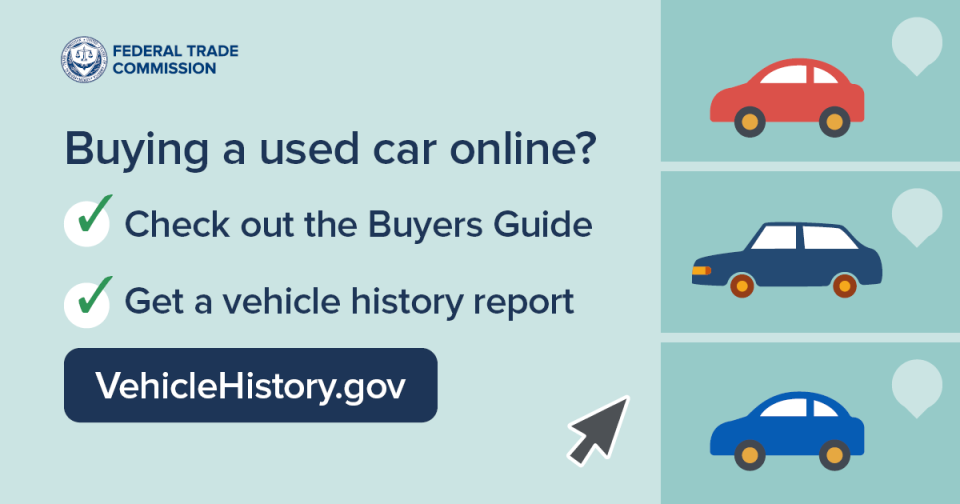Buying a used car instead of a new one might save you some money. But finding, researching, and negotiating to get a used car can be challenging. Online sellers might claim to make buying a used car cheaper and easier, but some sellers use tactics that might end up costing you time and money.
The FTC says online seller Vroom.com broke the law when it failed to give people required Buyers Guides, misrepresented vehicle inspections, didn’t post copies of its warranties, and failed to give customers the option to cancel and get a refund when the company didn’t deliver many cars on time.
The law says dealers must put a Buyers Guide on every used car. The Buyers Guide tells you if the car has a warranty or is being sold “as is.” And, for online sales, dealers must give people the option to cancel their order and get a prompt refund when their car doesn’t ship on time. If you’re shopping for a used car, here are some steps to take:
- Get a vehicle history report. Start at vehiclehistory.gov to get free information about a vehicle’s title, the most recent odometer reading, and condition. For a fee, you’ll get other reports with additional information, like accident and repair history.
- Get help from an independent mechanic. This is a good idea even if the car has been “certified” or inspected by the dealer. You’ll have to pay the inspection fee, but it can help you avoid buying a car with major problems.
Learn more about buying and owning a car at ftc.gov/usedcars. You have the right to know the facts about any car you buy. If the dealer isn’t honest, let the FTC know at ReportFraud.ftc.gov and tell your state attorney general.


Thank you! These few paragraphs were very resourceful and the links helpful.
Dealerships on the side of the street will not allow you to take their cars to get an inspection. I will never buy from one of these sellers again.
Thank you as I have been struggling with online buying and don’t feel they provide all the facts.
This was most helpful.
I found a good deal on a used car. The dealer would not schedule a time to see the car. However he wanted us to pay online instead of in person. Appears to be a scam. That seems to be happening quite frequently. Beware of such transactions.
In reply to I found a good deal on a… by Elizabeth Smith
Similar incident selling clothes for an old friend online
Great article! Very timely and informative.
I bought a car through Vroom and have had a myriad of problems with it, including a delay in its delivery. I relied on their inspection program that assured me it was safe to buy a car online. What recourse do I have?